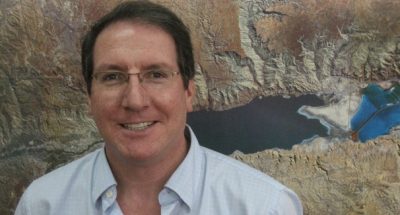 Turkey has a critical role to play in a clean energy future, says former vice president Al Gore. But when is it going to start taking that role seriously?
Turkey has a critical role to play in a clean energy future, says former vice president Al Gore. But when is it going to start taking that role seriously?
The unusual political identity of Turkey — a stable, democratic, Islamic country — serves as inspiration for democratic reformers in the Arab world. Its government is a model of political progressiveness for its neighbors to the east and south. In the same fashion, strong climate and energy policy in Turkey could inspire environmental action as radical as the democratic revolutions currently sweeping the region. That was the message of former U.S. vice president Al Gore at the “Leaders of Change” summit in Istanbul on Monday, according to the Turkish daily Today’s Zaman.
Speaking alongside several former prime ministers and former UN secretary Kofi Annan, Gore commended Turkey for displaying “unprecedented leadership” in its region of the world, and urged the government to position itself at the center of an intercontinental renewable energy grid. Gore also pointed out that Turkey would be among the countries most affected — make that desertified — by a devastating drought predicted to set in toward the middle of this century if carbon emissions continue at current rates. (This desertification has already started occurring in some parts of the country, according to the environmental news site TreeHugger.)
Turkey’s government has long claimed to be concerned about environmental issue. In fact, Gore’s words came almost one year after Turkish Environment and Forestry Minister Veysel Eroğlu announced that Turkey was “ready to become the world’s most environmentally friendly country“. So in the last year, Turkey’s energy and environmental ministries have teamed up to reduce carbon emissions and encourage a cleaner energy industry in the country, right? Wrong.
“Turkish bureaucracy still wants the 1970s kind of energy developmental path,” Alidost Numan, who works with Greenpeace Turkey, tells Green Prophet. “They want to walk down the path that has already been tested rather than the more sustainable, decentralized policies that other countries are now pursuing.”
Indeed, despite the government rhetoric, most of Turkey’s power still comes from plants that run on fossil fuels, with at least sixty more currently under construction. Turkey’s hydropower dams, which account for about one fifth of the country’s installed capacity, have faced strong opposition from environmental groups and local residents because of their inefficient use of water and destruction of riparian ecosystems.
Rather than offer financial subsidies to get Turkey’s tiny wind and solar industries off the ground, the government is investing heavily in nuclear power at the moment. One reactor has already been commissioned from a Russian company, and Turkey’s energy minister has said that construction on it will begin in the next few months.
The plant, which would supply roughly ten percent of Turkey’s current installed capacity, is slated to be built just 15 miles from an active fault line. Furthermore, it probably won’t actually be plugged into the grid for another 20 years — if it withstands the current tide of anti-nuclear sentiment and gets built at all, that is.
So when is Turkey going to step up, and become the environmental exemplar its leaders claim it is ready to be?
Read more environment news from Turkey:
“Anatolia Won’t Be Blackened” Declare Turkish Anti-Fossil Fuel Groups
Dam Victory for Turkey’s Environmentalists
Turkey: The World’s Most Environmentally-Friendly Country? Maybe, With Water
Image via simone.brunozzi



